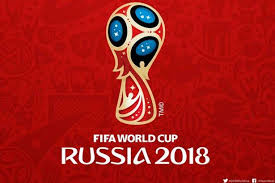By Andrew Warshaw
November 29 – It promises to be one of the most glitzy occasions since Gianni Infaninto swept into power. But if the FIFA president and Vitaly Mutko, chief organiser of next year’s World Cup, were hoping for a trouble-free environment ahead of Friday’s globally televised draw in Moscow, they have one or two unwanted distractions on their hands.
If the FifaGate trials in New York were not proving controversial enough, the Russian sports doping scandal is something organisers could very much do without as it threatens to wrench some of the focus away from the lavish ceremony in the concert hall at the Kremlin Palace.
Mutko, Russia’s Deputy Prime Minister but no longer a member of FIFA’s all-powerful Council because of a conflict of interest – much to the irritation of Infantino – has been quick to downplay the issue of doping in Russian football, saying reports on the use of performance-enhancing drugs were simply an attempt to discredit Russia.
No Russian player has ever failed a dope test at either World Cup or European Championship. But a World Anti-Doping Agency (WADA) report last year into alleged state-backed doping in the country listed football as one of the sports in which drug tests were allegedly covered up.
But Mutko is having none of it.
“If we play like this while doped, what would it be like without it?” the R-Sport news agency quoted him as saying.
Richard McLaren, the Canadian professor who drew up the Wada report, has questioned FIFA’s claim of working with him regularly during the doping investigation.
McLaren’s report listed 33 footballers as being among more than 1,000 athletes involved and FIFA recently insisted it had been in touch with McLaren at “several stages”.
But McLaren told the BBC: “I don’t know if they have been using my information to sort it out, they haven’t indicated that to me. They have had a contact with me, but that’s some time ago and not directly in connection with this.”
With five more Russian athletes banned from the Olympics for life as a result of the International Olympic Committee’s own investigations – taking the total to 19 – there is now growing speculation that Russia could be barred next week from competing at the Winter Olympics in Pyeongchang, South Korea, which begin on February 9.
FIFA general-secretary Fatma Samoura sidestepped the issue in terms of how that might affect the image of next year’s World Cup hosts, simply telling the BBC there is no history of doping in Russian football.
“If we come across something spectacular, definitely we will react very quickly,” she said. “But from what we have seen and the report we have got, we cannot talk about widespread doping in football.”
Contact the writer of this story at moc.l1713518968labto1713518968ofdlr1713518968owedi1713518968sni@w1713518968ahsra1713518968w.wer1713518968dna1713518968

